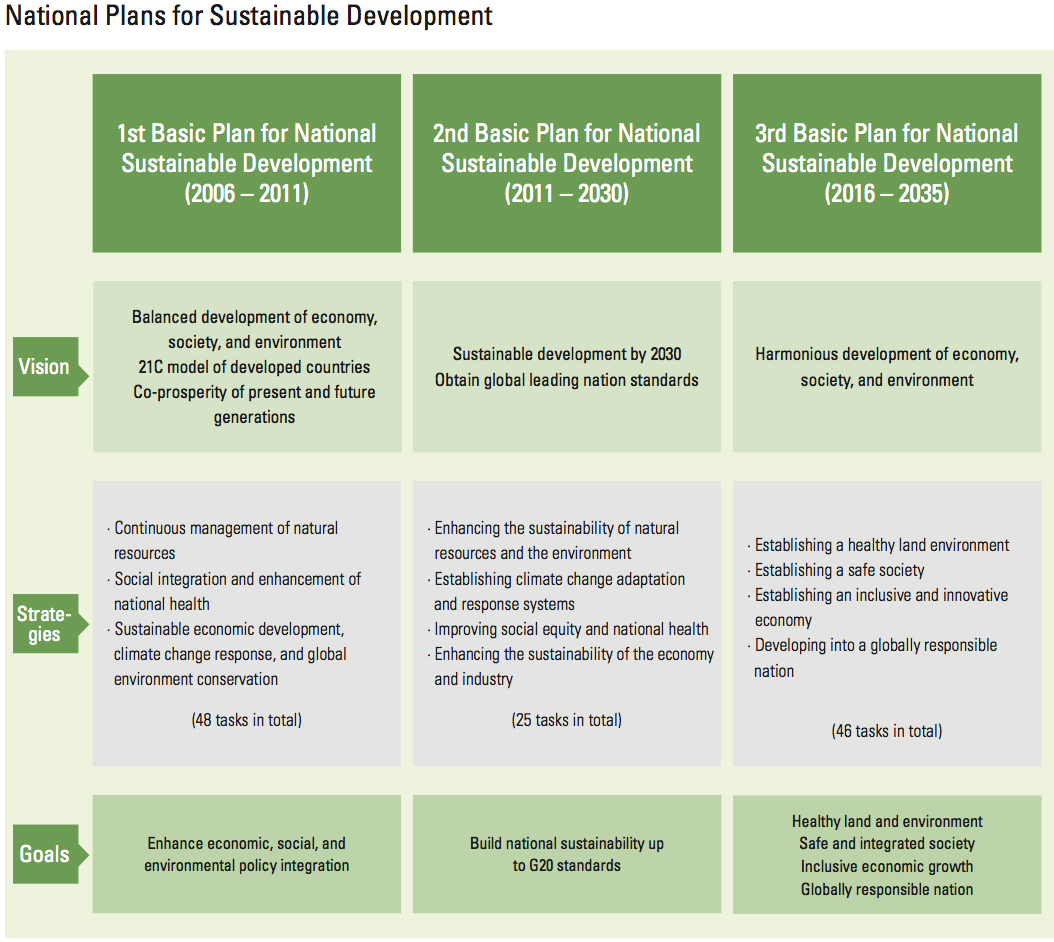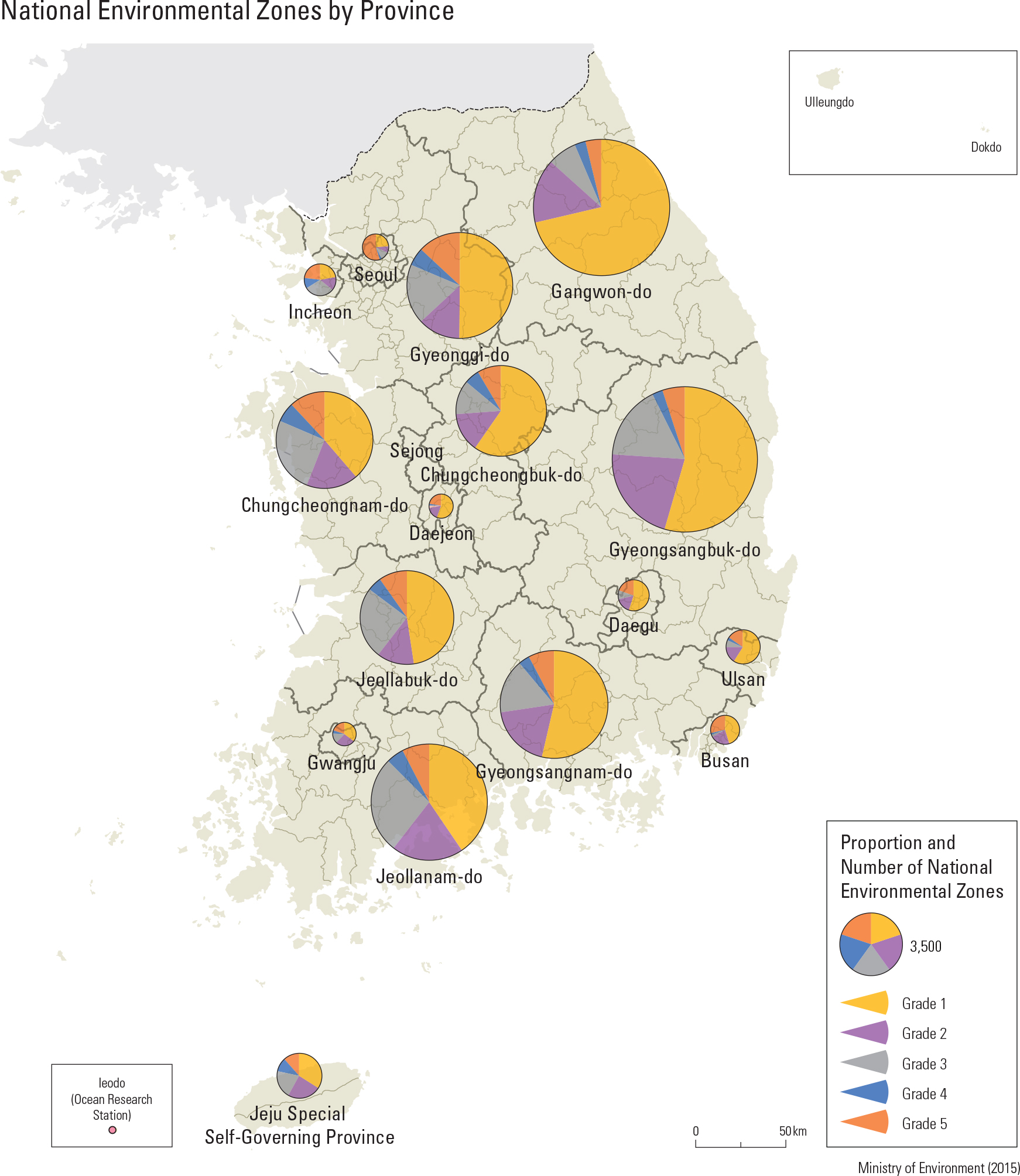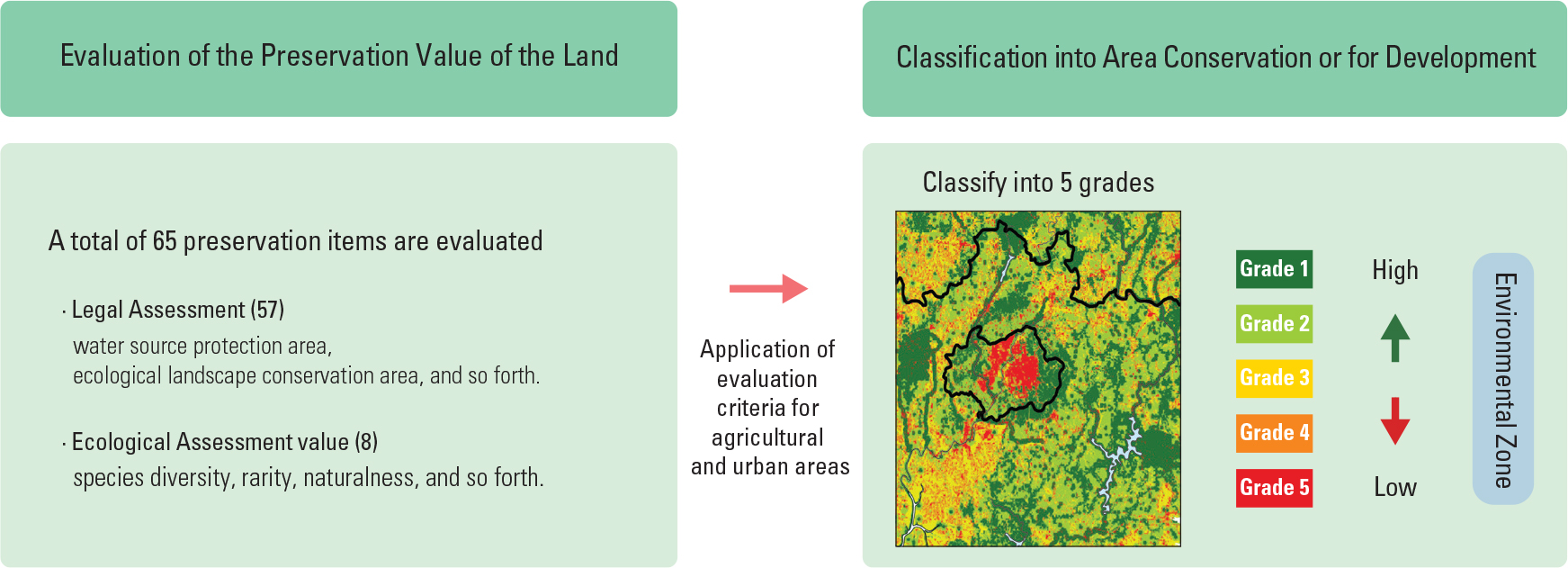English II
As one of the most densely populated countries, South Korea is a global powerhouse of economic growth and development. The nation ranks 27th in the world for its population size of 51 million residents (2015), and has a density of 505 people per square kilometer. After Bangladesh (1,067 people/km2) and Taiwan (646 people/km2), Korea has the third largest population density among countries with over 10 million in population. Fueled by high population density, the nation has undergone large-scale development and eco- nomic advancement at unprecedented rates within the last few decades. More speci cally, growing numbers of land development and urbanization projects have led to an increase in environmental issues and serious degradation of ecosystems. The urbanization rate of Korea stands at 85.4% (OECD), which is double the average of 47.1% for 34 OECD member states. Such high rates of urbanization have accelerated the deformation and destruction of natural ecosystems, leading to key environmental problems that have recently come to light. From the 1980s, however, environmental issues have taken a promising turn with broader public awareness and participation. Various networks have been forged between the government and civil society to prevent further degradation and improve the nation’s environmental status. With combined efforts from non-profit environmental organizations and the government, progress con- tinues to be made, from the reduction of water and atmospheric pollution to the restoration and improvement of environmental quality.In order to monitor changes in national environ- mental status, the government conducts periodic surveys on the atmosphere, water quality, forests, and other ecosystems. National environmental status has further become a public agenda as various environmental organizations have also been continuously contributing input. This has led to an expansion of environmental education programs and a boost in the number of associated organizations. By the end of December 2014, 172 groups registered as nonprofit-nongovernmental organizations and have been participating in pub- lic service assistance projects promoted by the central and local governments.After the UN Conference on Environment and Development in 1992, Korea established a nation- al strategy to pursue sustainable development in the spirit of the Rio Declaration and Agenda 21. Korea’s national agenda for action was declared in the 1994 Ministerial Planning Committee for Earth Environmental Problems. In March 1996, the Agenda 21 plan for national action was drafted and executed, while on June 5, 2000, a comprehensive strategic plan, the “New Millen- nium Vision for the National Environment,” was announced. Soon after in September 2000, the Presidential Committee for Sustainable Develop- ment (PCSD) was declared. Comprised of various stakeholders, this committee has spearheaded na- tional sustainable development strategies in eco- nomic, social, and environmental elds to set up viable national objectives and policy directions. With 5-year intervals from 2006 to 2015, Ko- rea established and implemented the first and second rounds of the “Basic Plan for Sustainable Development.” Following changes in domestic and international social, economic, and environ- mental status, the nation has taken action to meet the main objectives of the Sustainable Devel- opment Goals adopted by the 70th UN General Assembly in September 2015. In order to guar- antee the national sustainable development plan and to strengthen global partnerships, Korea has launched the third round of the “Basic Plan for Sustainable Development (2016 – 2035)” for the next 20 years.
page_2 |




